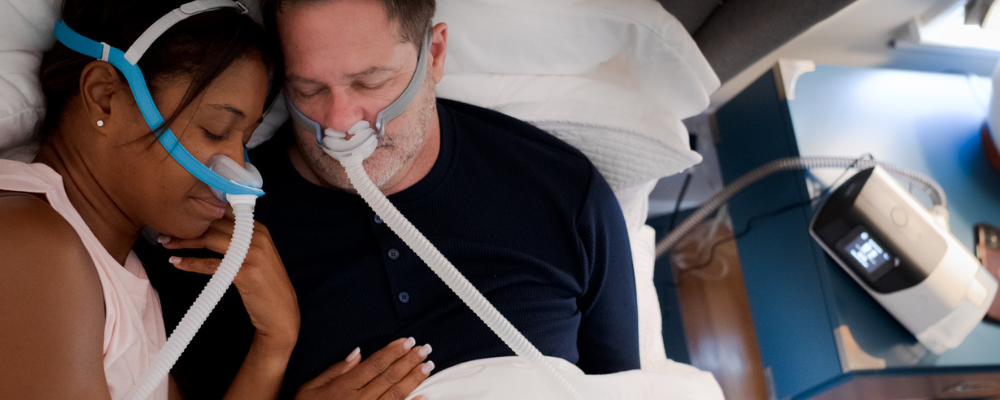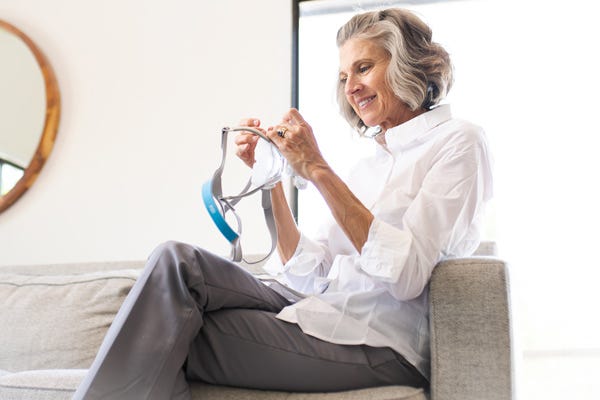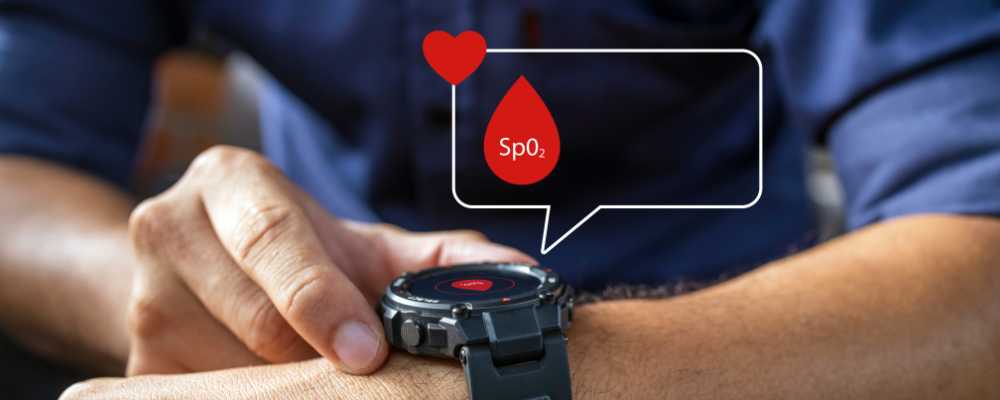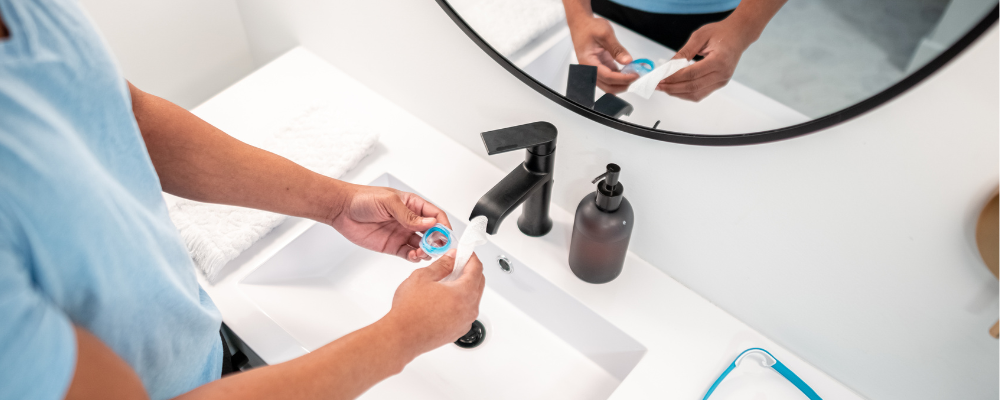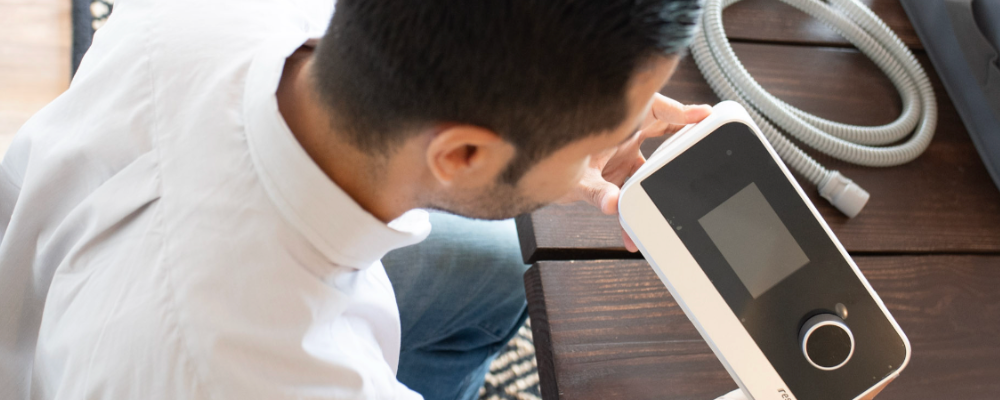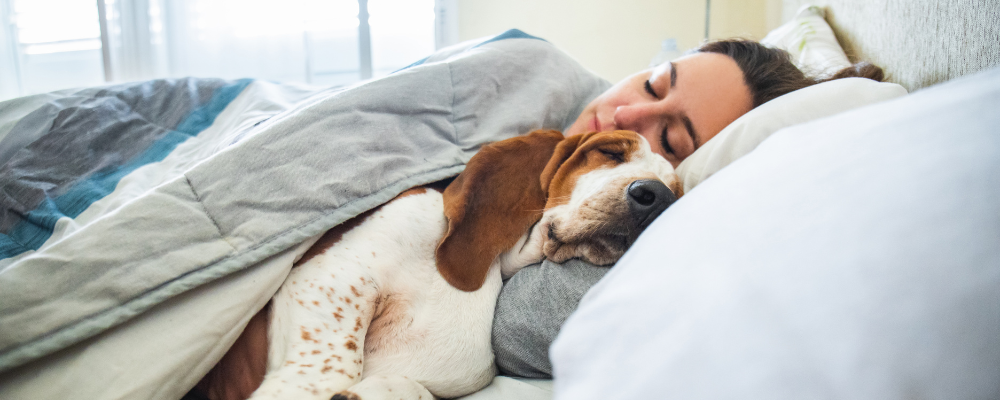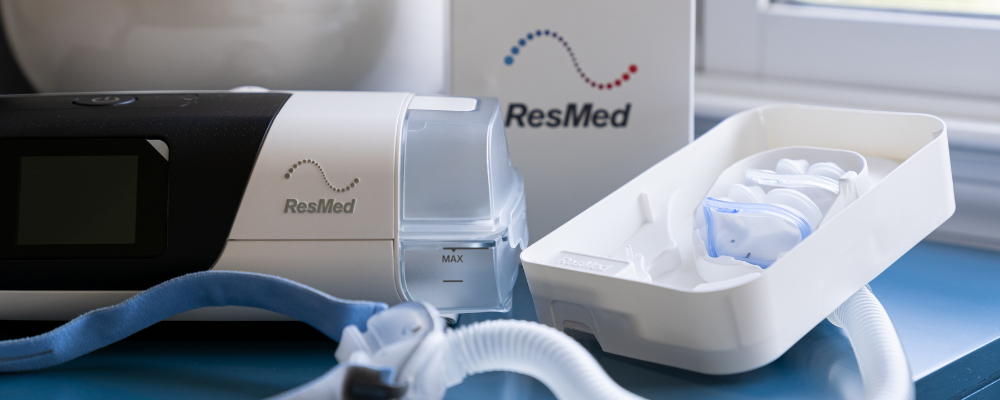We’ve said it before, and we’ll say it again; continuous positive airway pressure (CPAP) therapy is the gold standard for treating sleep apnea. Sleep apnea patients stop breathing during sleep, and CPAP therapy keeps that from happening. It opens your upper airways by gently pushing pressurized air from a CPAP machine to a CPAP mask worn within or around the nose and sometimes over your mouth while you sleep.
What controls your CPAP pressure level though, and therefore your breathing, is CPAP titration. Sounds like a pretty fancy term…but it really isn’t! Today, Aeroflow Sleep will fully define what CPAP titration is, how it's measured, what that costs, plus 3 ways using auto titrating benefits you. That way, you’ll know exactly why this fancy word is so important to your sleep apnea.
In This Article:
What's The Difference Between A Polysomnogram, CPAP Titration Study & A Split-Night Study?
How Much Does a CPAP Titration Study Cost?
3 Ways Auto-Titrating Benefits You
The Takeaway: Aeroflow Sleep Supplies APAP Machines
CPAP SUPPLIES THROUGH INSURANCE:
Aeroflow Sleep is in-network with most primary insurance companies and is accreditted by Medicare and Medicaid. Complete our Qualify Through Insurance Form, and we will automatically check to see if your plan covers CPAP supplies; including a machine, mask, and accessories. ***Must have a sleep study to qualify.***
You will also receive the care and attention every sleep apnea patient deserves; one-on-one clinical support in-home or via telehealth, a dedicated Sleep Specialist you can contact during business hours, and a user-friendly online portal with tailored replacement schedule, important updates and notifications, and educational resources.
Let us take the headache out of healthcare. Join the Aeroflow Sleep family today! It only takes 5-7 minutes to get started.
What is CPAP Titration?
In order to fully define what CPAP titration is, let’s break both of these words down individually and then bring them back together.
CPAP is continuous positive airway pressure. Titration is the scientific method used to measure how much of a substance is needed in order to react with a solution. In the case of CPAP titration, the substance is air pressure, and the solution is you; the sleep apnea patient. So, CPAP titration is your measured air pressure setting.
How you measure what your CPAP titration needs to be is through a CPAP titration study, but this is not the same as a split-night study or even a general sleep study. Turns out there’s quite a few differences between your possible sleep studies, so we’ll dig a little deeper!
What’s the Difference Between a Polysomnogram, CPAP Titration Study, and a Split-Night Study?
The difference between a CPAP titration study and a split-night study is the number of nights’ worth of observations needed to properly diagnose you. Michelle Worley, RN and Director of Clinical Operations at Aeroflow Sleep, explains:
“A polysomnogram, also known as a PSG test or more commonly referred to as a sleep study, is used to figure out if you have sleep apnea.” It’s what says you have one of three forms of sleep apnea (or another sleep disorder;) including obstructive sleep apnea (OSA.) That’s the first sleep test, and if you don’t have sleep apnea, there’s nothing else to worry about.
“A CPAP titration study is performed to determine how much CPAP pressure needs to be applied to resolve the apnea,” Michelle defines. In simpler terms, it determines the baseline level of air pressure your CPAP therapy needs to be set at in order to treat your sleep apnea. That’s the second sleep test and what needs to happen if and when you’re diagnosed.
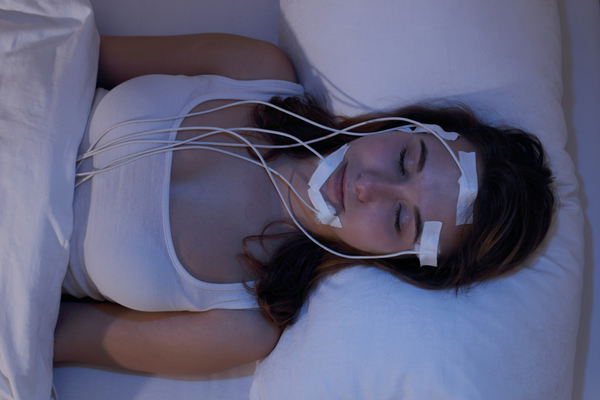

“A split-night study is a [sleep study that becomes] a one night study when the apnea is so severe, they stop the PSG halfway through the night and start the CPAP titration. A normal sleep study is first night PSG; second night, CPAP titration,” Michelle concludes. So, if the initial CPAP titration study finds your AHI or apnea and hypopneas are really severe, only then will a split-night study occur. After all, it may also identify other sleep-related breathing disorders.
Regardless, overnight sleep studies are required for a CPAP device to be paid through insurance, and, luckily, many sleep tests can be performed in the comfort of your home. That said, a split-night study can only be performed in a sleep laboratory, because any severe apneas are easier to manage with a sleep technologist present. Ask your primary healthcare provider which sleep apnea test is best for you or read Aeroflow Sleep’s outline on the pros and cons of a sleep center vs in-home sleep studies.
How Much Does a CPAP Titration Study cost?
A CPAP titration study is often covered–at least in part–by insurance, Medicare, and Medicaid. One MD tells WebMD an in-lab sleep study generally costs $650-1200 out-of-pocket with the CPAP titration determination running $150+ in addition to the test.
An at-home sleep apnea test does cost less than an in-lab sleep study, running between $200-450 out-of-pocket; however, you may not be reimbursed by insurance providers. Regardless, the benefits of CPAP titration greatly outweigh the cost.
3 Ways Auto Titrating Benefits You
So, your titration sleep study is done and you’re ready to reap the benefits! Except…what are the benefits of CPAP titration? An American Academy of Sleep Medicine (AASM) Review reveals the use of an automatic positive airway pressure (APAP) machine is actually where you start to see the benefits of CPAP titration.
Could an APAP be right for you? There are 3 ways auto titraing benefits you:
1. Combats Airway Resistance
The best thing about an APAP machine is that it will combat airway resistance. For example, if your upper airway is being blocked by a fatty neck or enlarged tonsils or adenoids, your air pressure will increase to compensate and then decrease when the obstruction is no longer obstructing. Simply put, APAP pressures get stronger or weaker depending on the need.
2. Prevents Severe Apneas During REM Sleep
It is important to note that although changes in your breathing pattern are normal, some sleep apnea patients may have longer and more severe apneas during REM sleep. If your CPAP titration study showed an increase in your AHI at this time, a fixed pressure CPAP can do the trick, but it would need to be set at a higher pressure. Many patients find higher pressures uncomfortable though and have difficulties with wakefulness. An APAP, on the other hand, could increase the pressure only when necessary.
3. Accounts for Certain Sleep Apnea Symptoms
If you suffer from certain sleep apnea symptoms like severe snoring, auto titrating will adjust only when those periods of snoring occur. The same goes for chronic allergies and nasal congestion; both cause swelling and inflammation in your upper airways, which can make apneas worse. Finally, if your weight fluctuates excessively, your air pressure needs to fluctuate too. APAP machines intuitively account for changes that fall beyond your CPAP titration.
The Takeaway: Aeroflow Sleep Supplies APAP Machines
If your sleep study reveals you have sleep apnea, a quick follow-up with your sleep doctor will be scheduled to determine if a CPAP titration study is needed or if an auto PAP titration is best for you. Then, an order will be placed with a PAP supplier like Aeroflow Sleep, so you can get your first CPAP or APAP (or BiPAP) machine quickly.
At Aeroflow Sleep, your order will include a clinical setup with a licensed respiratory therapist; like Michelle. Our setup lets you see how all of the PAP supplies fit together. More importantly, our experts set your CPAP for you, so you don’t have to worry about it yourself.
You will also be assigned a dedicated Aeroflow Sleep Specialist who can be reached by phone or email if you do have questions about your CPAP treatment. After all, we are here to serve you and work hard to ensure we get you the best possible product for the best possible coverage; even up to 100% through insurance. Sign up below to see if you qualify!
References
Berry, Richard B, et al. “The Use of Auto-Titrating Continuous Positive Airway Pressure for Treatment of Adult Obstructive Sleep Apnea.” American Academy of Sleep Medicine, AASM Review, https://www.aasm.org/resources/practiceparameters/review_autotitrating.pdf.
Kirkland, Kyle. “How Much Does The Average Sleep Apnea Test Cost?” WebMD, Connect to Care, https://www.webmd.com/connect-to-care/sleep-apnea/how-much-does-the-average-sleep-apnea-test-cost.
“Split-Night Polysomnography at the Sleep Disorders Institute.” Richmond University Medical Center, RUMCSI, https://www.rumcsi.org/services/sleep-disorder/split-night-polysomnography/.
Information provided in blogs should not be used as a substitue for medical care or consultation.


